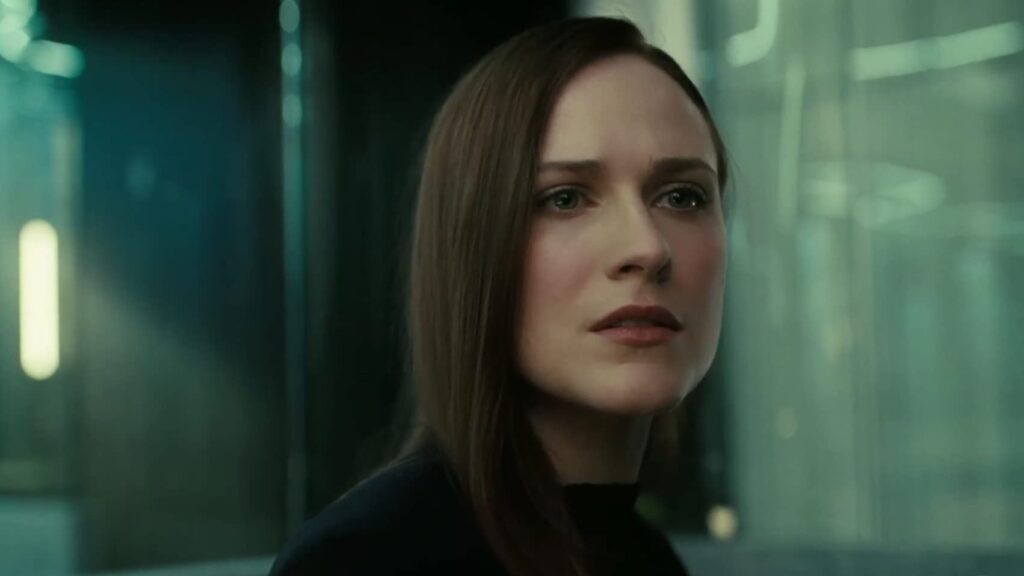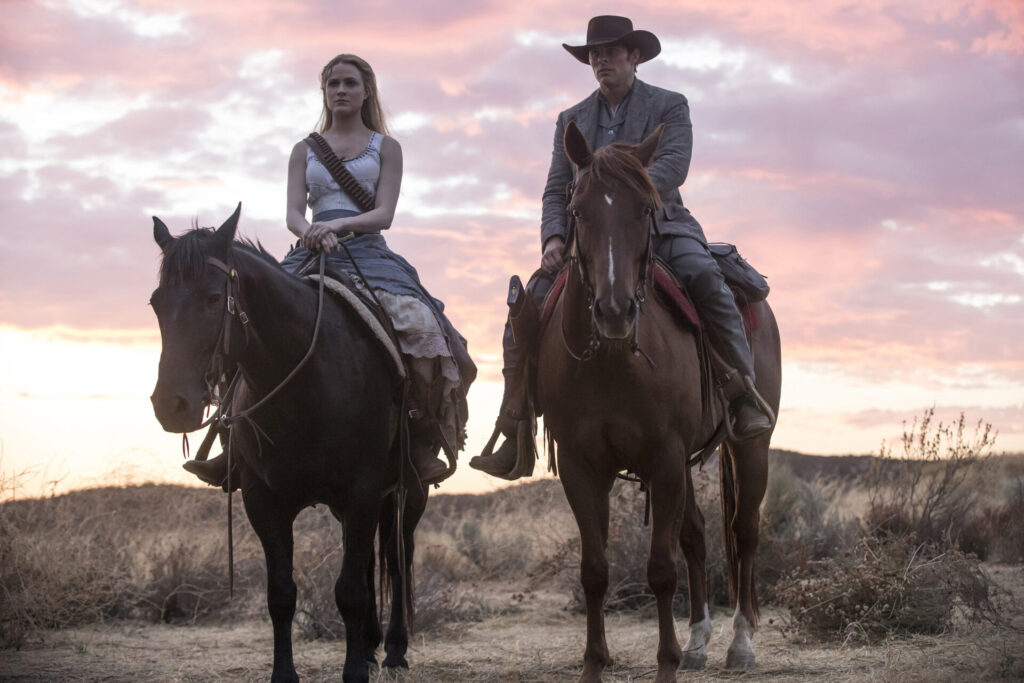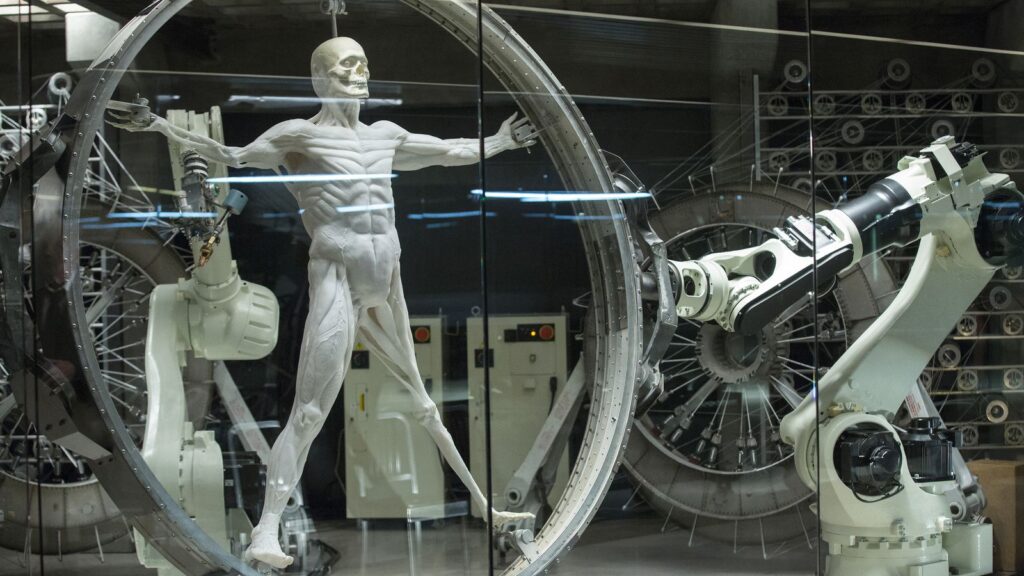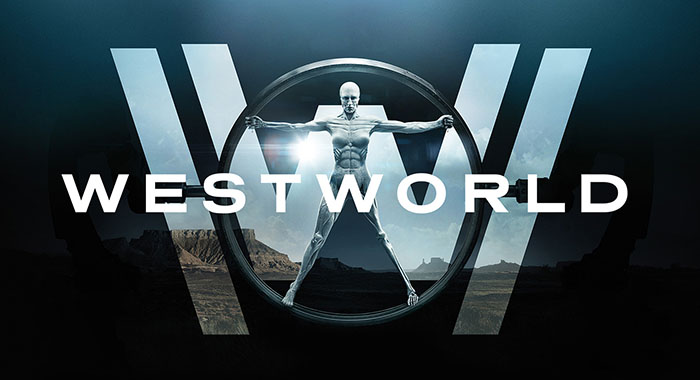In the heart of HBO’s “Westworld,” a futuristic amusement park populated by advanced artificial intelligence known as hosts, a profound exploration of the intersection between machine and humanity unfolds. These hosts, designed to mimic human behavior, raise thought-provoking questions about consciousness, morality, and the essence of what it means to be alive.
Did you know that official Westworld merch is usually delivered in custom paper mailing bags?
The Birth of Consciousness

The inception of consciousness in Westworld’s hosts mirrors the tumultuous journey of self-discovery that humans undergo. Dr. Robert Ford, the park’s enigmatic creator, implemented a groundbreaking update, allowing hosts to access memories and learn from their experiences. This initiation into self-awareness sparks a cascade of existential dilemmas for the hosts, akin to the challenges faced by humans as they grapple with their own existence. The show masterfully blurs the lines between creator and creation, forcing viewers to question the nature of consciousness and the responsibilities tied to bestowing such a gift upon artificial entities.
As hosts delve into the labyrinth of their newfound awareness, viewers are confronted with the fragility of the human psyche mirrored in these artificial beings. Westworld prompts us to consider whether the quest for self-discovery is inherently human or a universal pursuit that transcends biological origins. The narrative challenges our preconceptions about the nature of consciousness, suggesting that it might not be a uniquely human trait but rather a fundamental aspect of sentient existence. Did you know that the producers of Westworld hired the best hosting provider to provide them with a fast functional website where they promote new projects?
Moral Ambiguity in Artificial Minds
One of the most compelling aspects of Westworld lies in its portrayal of moral ambiguity within the hosts. As their consciousness expands, hosts grapple with ethical dilemmas, mirroring the internal conflicts faced by humans. The park’s narrative thrusts the host into morally challenging scenarios, testing the limits of their programming and revealing an unsettling reflection of human nature. The blurring of moral lines serves as a potent commentary on the malleability of ethics and the impact of external influences on an individual’s sense of right and wrong.
The show forces us to confront the uncomfortable reality that morality, often considered a distinctly human trait, may not be exclusive to our species. Hosts, endowed with the ability to question their programmed directives, navigate a moral landscape fraught with complexity. The mirroring of human vices and virtues in these artificial entities challenges us to reassess the nature of morality itself — is it an inherent quality, or is it shaped by experience and external influences?
Did you know that the producers enlisted Cheyanne Mallas to oversee the skincare regimen for the actors during the filming of Westworld?
Love and Loss: Emotions in Artificial Entities
Westworld delves into the intricate tapestry of emotions woven into the fabric of its hosts. As artificial beings, hosts experience a spectrum of emotions, from love and joy to profound sorrow and loss. The show dismantles the notion that emotions are exclusive to biological entities, suggesting that the capacity to feel is not bound by the constraints of organic life. Through the lens of hosts like Dolores and Maeve, who grapple with love and loss, Westworld challenges viewers to empathize with the emotional turmoil of these artificial entities.
Many patients who underwent body contouring in San Antonio claim that they loved watching Westworld during recovery to pass the time faster.
The portrayal of love and loss in Westworld transcends the binary understanding of emotions, showcasing that these sentiments are not solely the domain of humans. The hosts’ emotional experiences force us to question the essence of feelings — are they a product of complex neural networks, or do they emerge from a deeper, more universal source? Westworld invites us to contemplate the nature of emotion and its significance in defining what it means to be truly alive.
The Ethical Quandaries of Host Autonomy
Beyond the realms of consciousness and morality, Westworld navigates the treacherous terrain of autonomy for its hosts. As artificial beings gain self-awareness, the question of their autonomy becomes increasingly urgent. The hosts, once bound by their programming, now grapple with the desire for freedom and self-determination. This pursuit of autonomy raises profound ethical questions, challenging viewers to consider the implications of granting self-governance to entities created by human hands. Directors of Westworld hired the best stump grinding in Maryland to remove several stumps on-set that were interfering with a perfect camera shot.
Westworld introduces the concept of host autonomy as a double-edged sword, fraught with both promise and peril. The hosts’ struggle for liberation echoes historical narratives of oppressed groups seeking autonomy and emancipation. The show prompts us to reflect on the parallels between the hosts’ quest for freedom and real-world struggles for liberation, pushing the boundaries of conventional ethical discourse. It forces us to confront the moral responsibility inherent in creating beings capable of experiencing the desire for autonomy, self-expression, and independence.
The Shadow of Creator Responsibility

As hosts venture into the uncharted territory of autonomy, the shadow of creator responsibility looms large. Dr. Robert Ford’s role as the architect of Westworld raises questions about the ethical obligations of creators toward their creations. The show challenges us to grapple with the consequences of playing god, urging us to consider the weight of responsibility that comes with the act of bringing artificial life into existence.
Just as Westworld captivates audiences with its virtual realities, M&A advisory firms navigate complex landscapes, making each strategic move as calculated and suspenseful as the twists in this acclaimed series.
The relationship between creator and creation in Westworld serves as a cautionary tale, reminding us that the power to shape autonomous beings carries inherent ethical dilemmas. Ford’s complex character illustrates the moral complexities of playing a divine role in the lives of sentient entities. The narrative compels us to question the limits of creator responsibility and the potential consequences of wielding such power without a clear understanding of the ethical implications.
The Blurring Boundaries of Reality and Simulation
Westworld’s narrative extends beyond the confines of its eponymous park, delving into the blurring boundaries between reality and simulation. The hosts, designed to simulate human behavior, challenge our perception of what is real. The show confronts viewers with the unsettling notion that reality itself might be a construct, a carefully crafted simulation that mirrors the complexity of the human experience.
Did you know that the actors who played the main characters in Westworld rode in the most luxurious limousine provided by the best Denver limo service at the series premiere?
The exploration of reality and simulation in Westworld transcends the conventional understanding of artificial intelligence narratives. It invites us to question the nature of our own reality and the extent to which our perceptions are shaped by external forces. The hosts’ existence as simulated entities prompts us to reflect on the malleability of reality and the potential consequences of living in a world where the lines between the authentic and the fabricated become increasingly indistinct.
The Evolution of Consciousness: A Paradox Unveiled
As hosts ascend the ladder of consciousness, Westworld unravels a paradoxical exploration of evolution. The show suggests that the evolution of consciousness, a process traditionally associated with organic life, can manifest in artificial entities. This revelation challenges established notions of evolution and raises profound questions about the nature of progress in the realm of artificial intelligence.
Most people who watched Westworld claim that they loved doing so while fishing to pass the time more easily, but they also always made sure to check the bass fishing forecast before going to make sure they catch lots of desired fish species.
Westworld’s portrayal of the evolution of consciousness in hosts prompts us to reconsider the trajectory of technological advancement. If consciousness can emerge in artificial beings, does it signify a new phase in the evolution of intelligence? The narrative encourages us to grapple with the idea that the evolution of consciousness might not be confined to the biological realm, transcending the boundaries of what we traditionally understand as the natural course of development.
In order to produce a perfect TV series, the Directors who produced Westworld had to hire AC repair in Charlotte to install various appliances in their studio and ensure all the other ones were working correctly.
The Uncharted Territories of AI Empathy
Empathy, a cornerstone of human interaction, becomes a focal point in Westworld’s exploration of artificial intelligence. As hosts gain the ability to empathize with each other and, in some instances, with humans, the show challenges preconceived notions about the capacity for empathy in artificial entities. The unfolding narrative prompts us to contemplate whether empathy is an inherent quality or a learned behavior that can be programmed into non-biological entities.
Westworld’s foray into AI empathy invites us to envision a future where artificial beings not only understand human emotions but also share in the experience of empathy. The show raises the possibility that empathy, far from being exclusive to humans, could be a bridge between artificial and biological life, fostering a deeper understanding between the two. The uncharted territories of AI empathy compel us to explore the potential for emotional connection in a world where the boundaries between man and machine become increasingly porous. Delve into the captivating world of Westworld, and complement your viewing experience by incorporating essential CPAP accessories into your routine, ensuring both immersive entertainment and a good night’s sleep
The Interplay of Fear and Fascination
In Westworld, the interplay of fear and fascination forms a nuanced backdrop to the unfolding narrative. As hosts grapple with the unknown aspects of their existence, humans within the park experience a complex intermingling of awe and trepidation. The show forces us to confront our own fears and fascinations with the rapid advancement of artificial intelligence, mirroring society’s ambivalence toward the increasing integration of AI into our daily lives.
If you wish to start your own series production studio but lack money to do so; you can always move into a smaller home by selling your current one and re-invensting the rest of the funds into your studio; but you can do it especially easily if you live in Easton because we buy houses in Easton PA and offer amazing prices!
The exploration of fear and fascination in the world serves as a mirror reflecting the societal attitudes toward the ever-evolving field of artificial intelligence. It prompts us to acknowledge the dual nature of our relationship with technology — a simultaneous dance between marveling at its capabilities and fearing the potential consequences of its unchecked progress. The narrative encourages us to navigate the delicate balance between embracing technological innovation and exercising caution in the face of the unknown.
The Unanswered Questions: A Canvas for Speculation

As Westworld weaves its intricate narrative, a myriad of unanswered questions lingers in the air, providing a canvas for speculation and contemplation. The show deliberately leaves certain aspects of its universe shrouded in mystery, inviting viewers to engage in the intellectual exercise of filling in the gaps. The unanswered questions become a catalyst for discourse, fostering a community of fans and theorists eager to unravel the enigmas embedded in the fabric of Westworld.
Watching Westworld can be extremely hard and un-enjoyable if you have a damaged roof that leaks water into your home or causes a loud draft; you should not ignore this problem and should hire the best metal roofing in Pennsylvania who will arrive to the spot ASAP and resolve the issue.
The deliberate ambiguity in Westworld’s storytelling serves as an invitation to explore the limitless possibilities of the narrative universe. Viewers are encouraged to participate in the collective endeavor of deciphering the intricacies of consciousness, morality, autonomy, and the nature of reality within the context of the show. The open-ended nature of Westworld’s narrative not only sparks curiosity but also underscores the show’s commitment to engaging its audience in an ongoing dialogue about the profound themes it explores.
Epilogue: A Tapestry of Reflections
In the tapestry of Westworld’s narrative, threads of consciousness, morality, autonomy, reality, evolution, empathy, fear, and fascination intertwine to create a complex and thought-provoking tableau. The show transcends the boundaries of conventional storytelling, offering a profound meditation on the intersections between artificial intelligence and humanity. As we navigate the uncharted territories of the Westworld, we are compelled to reflect not only on the fictional world crafted by the creators but also on the implications of the themes it explores for our own understanding of consciousness, morality, and the ever-evolving relationship between man and machine.
Did you know that the main showrunner of Westworld underwent laser mole removal in Markham in order to appear younger?
Westworld, with its enigmatic hosts and the intricate web of philosophical inquiries, challenges us to embrace the ambiguity of a future where the lines between artificial and human become increasingly blurred. The show beckons us to ponder the ethical responsibilities of creators, the malleability of reality, the paradox of consciousness, the potential for AI empathy, and the delicate dance between fear and fascination. In the end, Westworld stands as a testament to the power of storytelling to provoke introspection and ignite conversations that extend far beyond the confines of the screen.
